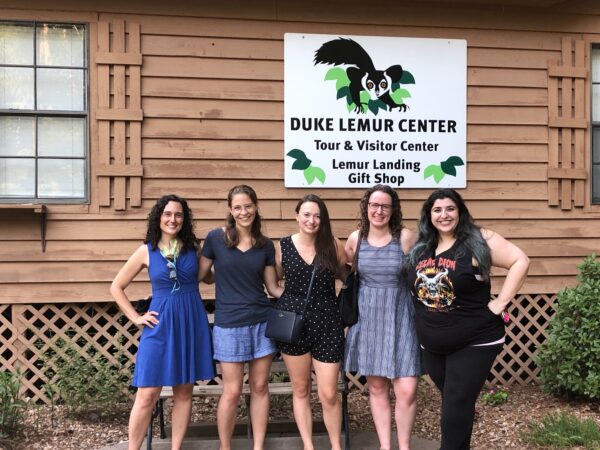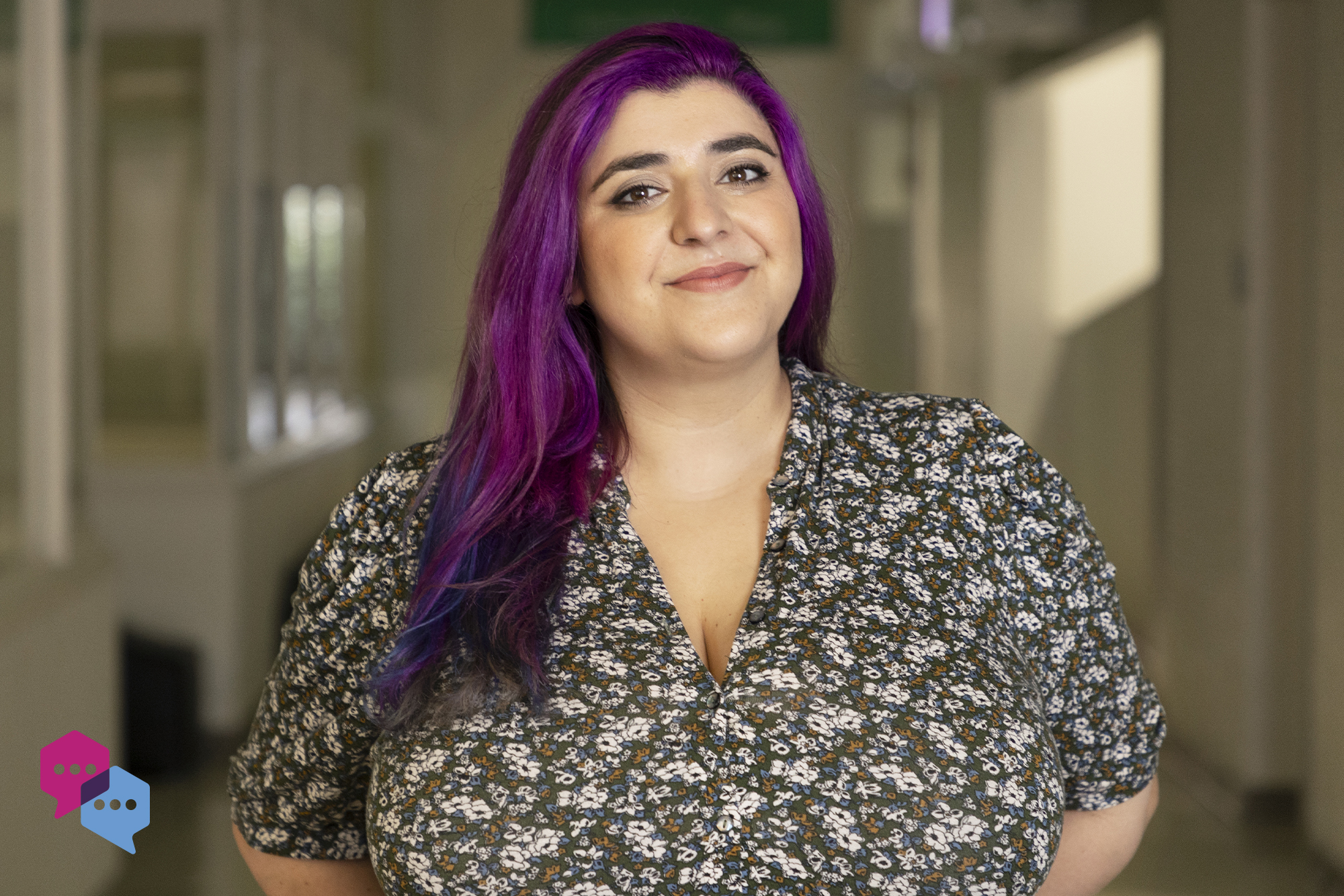Q: When you were a child, what was your response to this question: “What do you want to be when you grow up?”
A: A vegetarian veterinarian! I had absolutely zero concept of what that entailed as a career — and lifestyle choice — but really enjoyed how those words fell off the tongue and happily yelled it to anyone who asked.
Q: Share the pivotal moment in your life that helped you choose your field of study.
A: I used to work for Disney/ABC Television Group in their standards and practices department. They’re the internal watchdog group that makes sure the shows are suitable for kids. My time there gave me an intimate understanding of the level to which sex and violence are interjected in our media and how much sex, specifically, was demonized over any other mimicable message.

Mazandarani (right) enjoys the Duke Lemur Center with five friends who are graduate students in different departments at UNC. From left to right: Kate Saylor, public policy; Stefani Priskos, folklore; Karly Schmidt-Simard, geography; and Megan Barry, maternal and child health.
Once I started my master’s, I decided to write my first literature review on the effects of sex media and found out how colossally under-researched quantitative sexual media was. I was floored. And there was even less when it came to pornography. Most quantitative content analysis research on pornography was done well before the internet, and people were still citing them within the context of our modern perspective. I couldn’t sleep at night thinking about our world basing its research on such outdated information. The pull was so great that it didn’t feel like a choice; it felt like a calling.
Q: Tell us about a time you encountered a tricky problem. How did you handle it and what did you learn from it?
A: The trickiest problem was choosing a university with a internal review board (IRB) to conduct pornographic media effects research. It took a real hit on my ability to do my research within a semester, so I opted to not research humans anymore, and I’m so glad I did.
It challenged me to seek methodologies that could contribute to the field without the use of subjects, and it really honed my skills as a methodologist. I’d say that I’m more of a methodologist now than a media effects researcher, which allows me to help all my colleagues with any study design questions they may have. Plus, having to pivot my interests led me to discover my absolute love for analyzing content and how it allows me to set my own timeline at my own speed.
Q: Describe your research in 5 words.
A: Culture mimics pornography, vice versa.
Q: What are your passions outside of research?
A: I absolutely adore quirky lessons on obscure history that have nothing to do with my work. I’m unendingly curious and come from a family of workaholics, so the only way to recharge myself without feeling the guilt of being unproductive is by shifting my focus away from my research and toward fascinating figures, events, and processes that blow my mind. This can be by visiting that museum you’ve crossed three dozen times on the way to the office, watching a documentary, perusing an archive, signing up for a colloquium lecture at a different department, or striking up a conversation with a seasoned local. It’s awesome because it isn’t defined by a particular activity but rather an abstract passion that can be accomplished however the mood strikes — or what the pandemic dictates.


